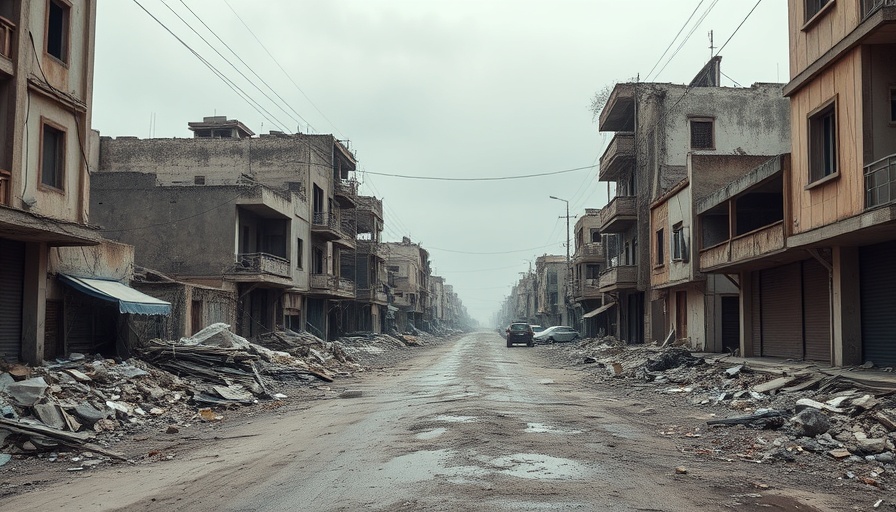
Desperation in Al-Fashir: A Snapshot of the Escalating Crisis
In Sudan's al-Fashir, the unrelenting reverberation of shelling marks the grim reality of life under siege. As conflict rends the city, civilians face the dual threats of violence and starvation, plunging them deeper into desperation. Markets lay barren, food supplies dwindle, and the specter of hunger stalks every household, creating a poignant tableau of human suffering.
The Global Implications: What Africa's Crisis Signals for International Relations
This human tragedy transcends borders, reflecting broader issues that underscore Africa’s geopolitical dynamics. As nations worldwide observe the plight of al-Fashir's residents, the ongoing crisis may shape diplomatic relations and foreign aid policies not just within Sudan, but across the continent. Business leaders and policymakers must reckon with the humanitarian implications of such conflicts on global stability, trade, and governance.
Food Insecurity Amidst Conflict: A Growing Challenge for Africa
The situation in al-Fashir exemplifies the stark contrasts of modern Africa—where some nations forge ahead and others remain mired in strife. The United Nations has redoubled its efforts to address food insecurity as a pressing global issue, with experts arguing for comprehensive strategies to ensure that humanitarian assistance reaches those in dire need. The implications for African governance and international relations are profound: as hunger grips regions, the onus lies upon global leaders to respond with empathy and strategic foresight.
Economic Ramifications: How the Crisis Affects Trade and Investment
For investors eyeing opportunities in Africa, the situation in al-Fashir sends ripples through the economic landscape. Instability often discourages foreign investment, contributing to a stagnated financial market in potentially lucrative regions. Understanding these dynamics is crucial for market players, as policy decisions in response to human rights crises can reshape Africa’s role in global trade.
Building a Sustainable Future: Resilience Amidst Adversity
As al-Fashir battles through this siege, the resilience of its inhabitants shines through the dark clouds of despair. Lessons learned from this crisis could forge pathways for sustainable policies aimed at promoting peace and stability. For stakeholders in African governance and international relations, addressing the root causes of conflicts and investing in social infrastructure can pave the way for a brighter future.
As we reflect on the ongoing crisis in al-Fashir, it becomes imperative that global leaders take decisive action in their foreign relations strategies. The time is now to consider how our responses to humanitarian crises can help build a foundation for sustainable development in Africa and beyond.
 Add Row
Add Row  Add
Add 


Write A Comment